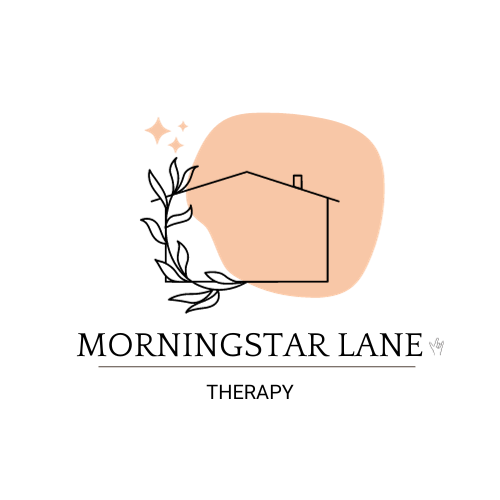
“O body swayed to music, O brightening glance, How can we know the dancer from the dance?” - WILLIAM BUTLER YEATS
Morningstar Lane’s Therapeutic Approach
-
Developed by Drs. John and Julie Gottman, they were profiled in Malcolm Gladwell’s bestseller Blink for their ability to predict a couple’s likelihood of divorce with 94% accuracy after just a few minutes of observation. Psychotherapy Networker, a professional journal, recognized the Gottman’s as one of the ten most influential therapists of the past 25 years.
The goals of Gottman Method Couples Therapy are to disarm conflicting verbal communication; increase intimacy, respect, and affection; remove barriers that create a feeling of stagnancy; and create a heightened sense of empathy and understanding within the context of the relationship.
-
Emotionally Focused Therapy is a evidence based model created by Susan M. Johnson, EdD.
It is a short term treatment model that treats couples, families, and individuals through experiential corrective experiences that alleviate symptoms of disconnection from others and ourselves. It is a psychotherapeutic approach that grounded in 50 years of attachment science that has treated emotional problems ranging from anxiety to depression.
-
At the most basic level, there is an understanding that change generally involves making the unconscious conscious by evaluating how our internal beliefs, thoughts, and parts that we reject about ourselves are influencing our behaviors, and relationship patterns.
-
This approach believes a family is a whole, complex, single system; each member’s behaviors can impact another member. The family will maintain everyone’s roles within it by the system attempts to return to its original state wherein members are functional and comfortable. Sometimes this leads to roles or ways of being that are not healthy for everyone. Change can occur when a family system acknowledges that a particular family pattern is dysfunctional and identifies new processes that support the family’s goals.
-
Humanistic psychology is a perspective that emphasizes looking at the the whole person, and the uniqueness of each individual. Humanistic psychology begins with the existential assumptions that people have free will and are motivated to achieve their potential and self-actualize. Meaning, I am merely a guide to help you find the answers that are already within you.
-
As a existential therapist, I recognize that human influence is shaped by biology, culture, and external influences. Existential therapy assumes the belief that people's problems come from not exercising choice and judgment enough--or well enough--to forge meaning in their lives, and that each individual is responsible for making meaning out of life. Outside forces, however, may contribute to the individual's limited ability to exercise choice and live a meaningful life.


COUPLES work
The ideal client coming to complete couples work has decided they need additional support to reconnect with one another due to a rupture, faded connection, or recent life transition.
-
The EFT process brings clarity to the process that is getting in the way of you and your partners ability to connect with one another. Once we calm down that process, then we’ll do some more work on how you can implement these things outside of this space at home.
The goals of the Gottman Method include increasing closeness and friendship behaviors, addressing conflict productively, and building a life of shared meaning together.
-
Couples therapy starts with a intensive intake process that evaluates the challenge areas that leaves you feeling stuck in a pattern of disconnect. The first intake is 90 minutes. Then we will meet individually twice to better understand your attachment history and assessment review. After the intake is completed it is recommended to meet for 8 to 12 weeks long depending on the circumstances that bring you to this space.
-
My therapeutic approach supports awareness in the dance that leaves you feeling stuck. Helping you claim your own feelings and how you may shape your partners feelings in return. It will create safe spaces at home where you can turn to your partner and express deeper emotions that were not expressed prior due to fear. It will reconnect you and your partner so that there is accessibility, responsiveness, and emotional engagement that sustains your commitment to one another. Along with new tangible tools on how to communicate effectively, express needs, and find solutions to your daily functioning.


INDIVIDUAL work
The ideal client is looking for a space to explore the patterns that disrupt their ability to communicate effectively with others and maintain genuine connections. You don’t need to be in a relationship or have family to work on how you show up with others or develop healthy natural supports or partners in your life. This internal process will help you connect better with your relationship to yourself, the most important one of all.
-
individual therapy is geared towards individuals that experience anxiety or depressive symptoms concerning interpersonal connection and negative relationship patterns.
-
Individual therapy is scripted to each individual I serve. For sustained change, it is recommended to meet weekly or biweekly for 8 to 12 weeks. Sessions are 55 minutes.
-
Individual therapy is targeted with concrete goals to help you become your authentic self through the Emotionally Focused Individual Therapuetic (EFIT) lens. This is partnered with the long standing Cognitive Behavioral Therapy (CBT) and tools taught from Dialectical Behavioral Therapy (DBT).
Book a consult today
“Love is not something we give or get; it is something that we nurture and grow, a connection that can only be cultivated between two people when it exists within each one of them — we can only love others as much as we love ourselves.”
— brene BROWN


